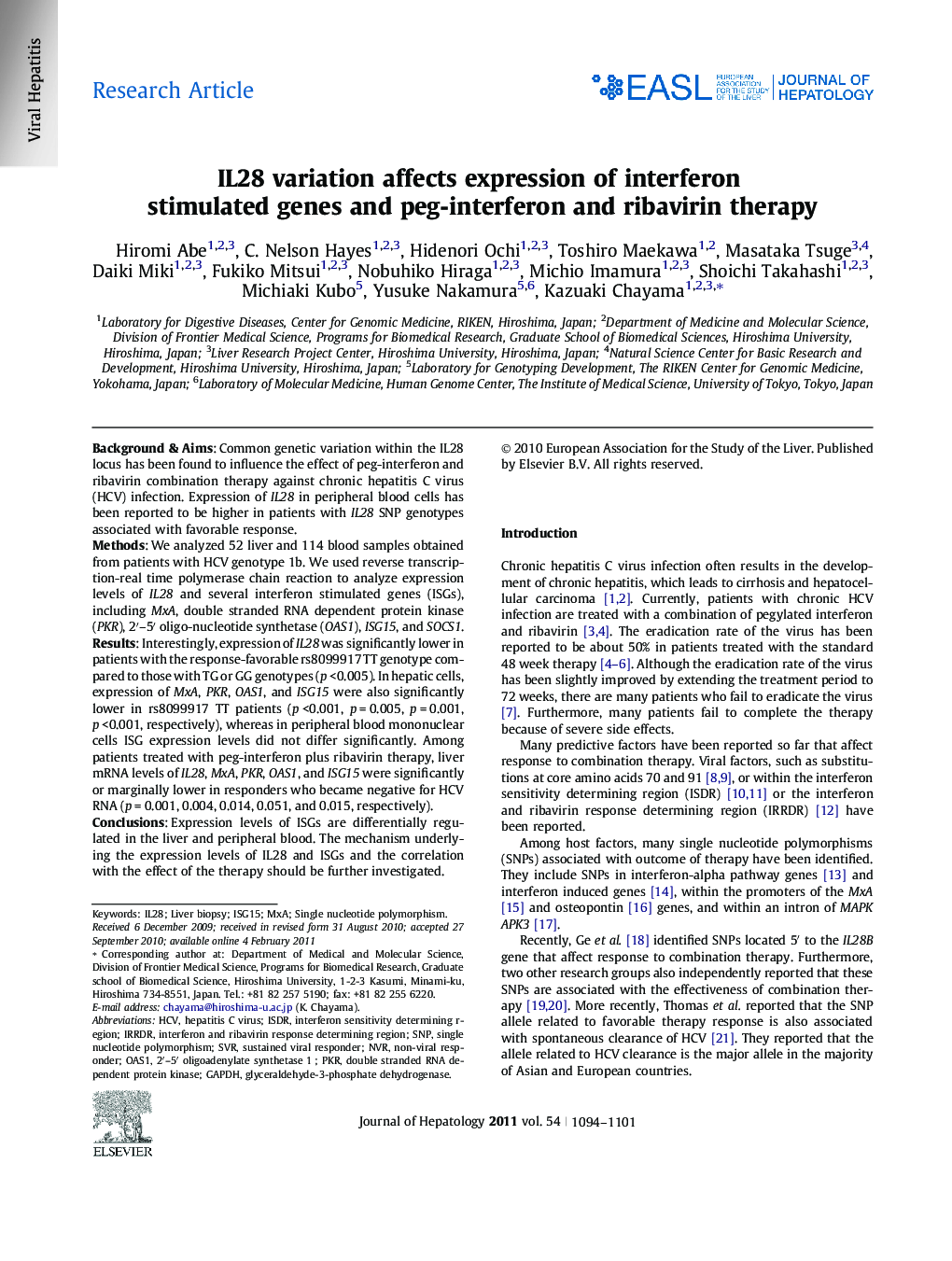| Article ID | Journal | Published Year | Pages | File Type |
|---|---|---|---|---|
| 6106096 | Journal of Hepatology | 2011 | 8 Pages |
Background & AimsCommon genetic variation within the IL28 locus has been found to influence the effect of peg-interferon and ribavirin combination therapy against chronic hepatitis C virus (HCV) infection. Expression of IL28 in peripheral blood cells has been reported to be higher in patients with IL28 SNP genotypes associated with favorable response.MethodsWe analyzed 52 liver and 114 blood samples obtained from patients with HCV genotype 1b. We used reverse transcription-real time polymerase chain reaction to analyze expression levels of IL28 and several interferon stimulated genes (ISGs), including MxA, double stranded RNA dependent protein kinase (PKR), 2â²-5â² oligo-nucleotide synthetase (OAS1), ISG15, and SOCS1.ResultsInterestingly, expression of IL28 was significantly lower in patients with the response-favorable rs8099917 TT genotype compared to those with TG or GG genotypes (p <0.005). In hepatic cells, expression of MxA, PKR, OAS1, and ISG15 were also significantly lower in rs8099917 TT patients (p <0.001, p = 0.005, p = 0.001, p <0.001, respectively), whereas in peripheral blood mononuclear cells ISG expression levels did not differ significantly. Among patients treated with peg-interferon plus ribavirin therapy, liver mRNA levels of IL28, MxA, PKR, OAS1, and ISG15 were significantly or marginally lower in responders who became negative for HCV RNA (p = 0.001, 0.004, 0.014, 0.051, and 0.015, respectively).ConclusionsExpression levels of ISGs are differentially regulated in the liver and peripheral blood. The mechanism underlying the expression levels of IL28 and ISGs and the correlation with the effect of the therapy should be further investigated.
